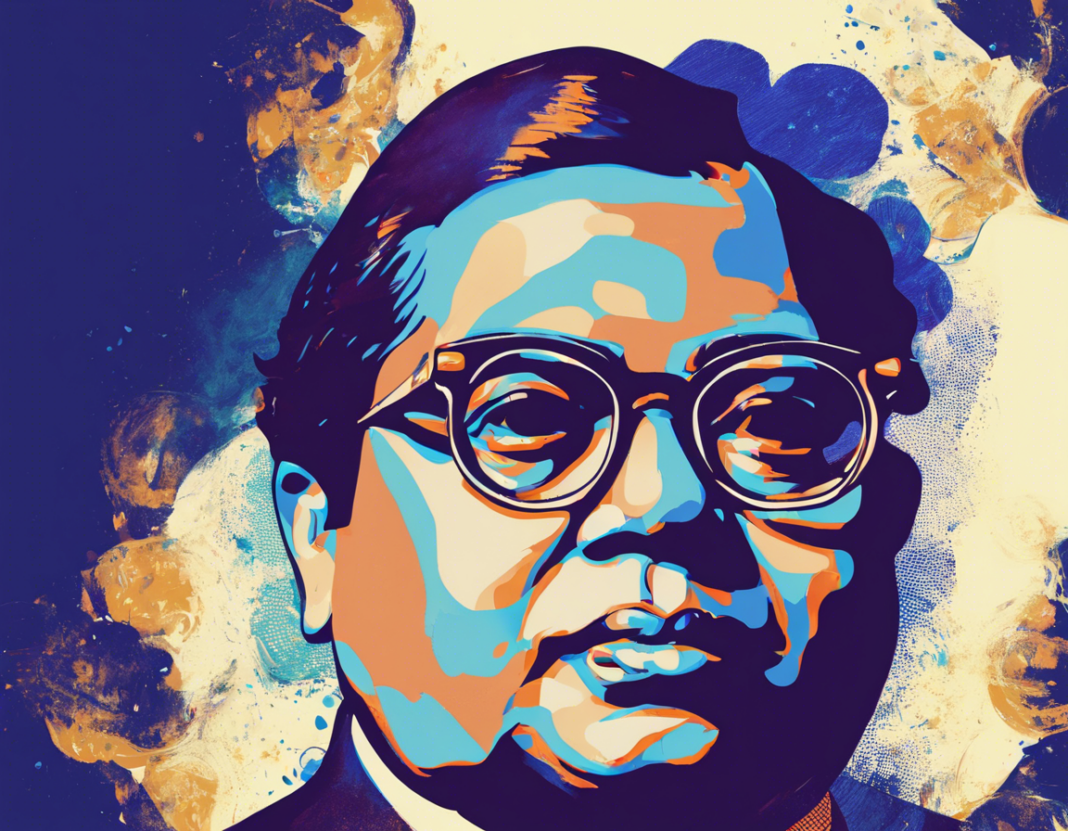Born on April 14, 1891, in a small town in India, Dr. Bhimrao Ramji Ambedkar, popularly known as Dr. Babasaheb Ambedkar, was a remarkable figure in Indian history. A jurist, economist, politician, and social reformer, he is best remembered as the chief architect of the Indian Constitution and a champion of social justice for the marginalized and oppressed sections of society.
Early Life and Education
Dr. Ambedkar belonged to the Dalit community, previously known as “untouchables,” who faced severe discrimination and social exclusion in Indian society. Despite facing numerous challenges and obstacles due to his caste, he focused on his education and went on to become one of the most educated individuals of his time. He completed his studies in economics and law from prestigious universities in India and abroad, including the University of Bombay, Columbia University in New York, and the London School of Economics.
Fight Against Caste Discrimination
Throughout his life, Dr. Ambedkar fought relentlessly against the oppressive caste system in India. His seminal work, “The Annihilation of Caste,” criticized the Hindu caste system as inherently discriminatory and called for its abolition. He argued for the equal rights and dignity of all individuals, irrespective of their caste or social background. Dr. Ambedkar’s efforts paved the way for significant reforms and movements aimed at eradicating caste-based discrimination in Indian society.
Role in Drafting the Indian Constitution
One of Dr. Ambedkar’s most significant contributions was his role as the chairman of the Drafting Committee of the Indian Constitution. As the principal architect of the Constitution, he played a pivotal role in shaping the foundational document of independent India. Dr. Ambedkar ensured that the Constitution enshrined the principles of equality, liberty, and fraternity, guaranteeing fundamental rights and protections for all citizens. His vision for a just and inclusive society is reflected in the progressive and forward-thinking provisions of the Indian Constitution.
Advocacy for Social Reforms
Dr. Ambedkar was a staunch advocate for social reforms to uplift the marginalized sections of society. He campaigned for the rights of Dalits, women, laborers, and other disadvantaged groups, emphasizing the need for equal opportunities and social justice. His efforts led to the inclusion of provisions for reservations and affirmative action in the Indian Constitution, aiming to provide representation and support for historically oppressed communities.
Legacy and Impact
Dr. Babasaheb Ambedkar’s legacy continues to inspire generations of people fighting against discrimination and injustice. His tireless efforts towards social equality and empowerment have left an indelible mark on Indian society. The principles of equality, justice, and dignity that he championed remain central to the ongoing struggle for a more inclusive and equitable society in India and beyond.
Key Accomplishments of Dr. Ambedkar:
- Architect of the Indian Constitution
- Leading voice against caste discrimination
- Advocate for social reforms and equality
- Pioneer of Dalit rights movement
- Renowned scholar and jurist
FAQs about Dr. Babasaheb Ambedkar:
1. What were Dr. Ambedkar’s significant contributions to Indian society?
Dr. Ambedkar played a pivotal role in drafting the Indian Constitution, fought against caste discrimination, advocated for social reforms, and championed the rights of marginalized communities.
2. How did Dr. Ambedkar’s background influence his activism?
Coming from the Dalit community, Dr. Ambedkar firsthand experienced the stigma and discrimination associated with the caste system, which motivated him to fight for social justice.
3. What is Dr. Ambedkar’s legacy today?
Dr. Ambedkar’s legacy is evident in the ongoing struggle for equality and social justice in India. His ideas and principles continue to inspire movements for empowerment and inclusion.
4. Why is Dr. Babasaheb Ambedkar considered the father of the Indian Constitution?
Dr. Ambedkar’s pivotal role in drafting the Indian Constitution, ensuring its democratic and egalitarian values, earned him the title of the chief architect of the Indian Constitution.
5. How did Dr. Ambedkar’s economics background influence his social reform efforts?
Dr. Ambedkar’s expertise in economics shaped his views on social inequality and poverty, leading him to advocate for policies that would uplift the disadvantaged and promote economic justice.
In conclusion, Dr. Babasaheb Ambedkar’s life and work exemplify a steadfast commitment to social justice, equality, and human rights. His relentless pursuit of a fair and inclusive society continues to resonate with millions of people striving for a better world. As a visionary leader and reformer, Dr. Ambedkar’s impact on Indian society and beyond remains profound and enduring.
